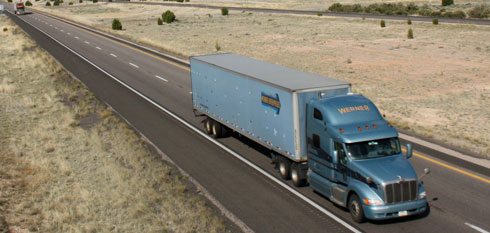
10 Feb Slight Rise in Fatal 18-Wheeler Accident Numbers
Fatal 18-wheeler accident numbers continue to go up, while overall highway deaths decline in 2013.
Crashes that involve large trucks create serious problems, and even though the increase in 2013 was not substantial, it still indicated an increase in the number of fatalities involving large trucks for the fourth straight year.
Statistical Recap
In 2013, the number of fatalities that involved 18-wheeler trucks increase slightly by 0.5 percent: 3.964 people compared to 3,944 people in 2012. These figures were reported December 19th, 2014, by the National Highway Traffic Safety Administration (NTHSA).
In spite of the fact that the increase in deaths was small, it doesn’t change the fact this there has been an increase every year for the past four years with 2009 being the last time there was a decrease. According to reports by the NHTSA’s Fatality Analysis Reporting System data, there was a low point in fatalities in 2009. In 2012 there were 104,000 injuries in accidents involving large trucks, and in 2013 the total number of injuries declined to 95,000.
Overview of the Problem
Even though there was a slight increase in deaths in 2013 that involved large trucks, the number of overall deaths from highway accidents declined from 33,782 in 2012 to 32,719 in 2013. The number of cases received by the Law Offices of Kevin J Roach, LLC is proof. This shows a decrease of 3.1 percent. In addition to the decrease in overall motor vehicle accident fatalities, the number of people who were injured in all highway crashes declined by 2.1 percent.
Trucking Companies Fight Hours of Service Rule Changes
Even though the amount of fatal 18-wheeler accidents have increased for the last 4 years, trucking companies are not working with the govermnet on creating safer highways. Trucking groups and their lobbyists have been aggressively fighting against the government (FMCSA) on recently-proposed hours-of-service changes which were proposed in an effort to curb the high numbers of 18-wheeler accident deaths.
In fact, they were recently successful in suspending enforcement of the new hours-of-service rules via the Consolidated and Further Continuing Appropriations Act of 2015, which was enacted on December 16, 2014.
It’s About Safety
While I completely understand the motivation for trucking companies to fight these new safety laws (cough money cough), I feel that it’s important to point out why 18-wheeler trucks are being targeted.
No one is saying that 18-wheelers are bad or that they shouldn’t be on the road, but one must understand the safety concerns when it comes to accidents involving large trucks. When two passenger cars collide, the results can absolutely be deadly, but when an 18-wheeler collides with a passenger car, the results are almost always catastrophic.
It’s simple physics. When a two-ton car is struck by a 40-ton 18-wheeler (especially at highway speed), the car loses every time. Passenger cars are not made to protect against that kind of force. THAT is why 18-wheelers get singled out, and THAT is why the industry is so heavily regulated. Victims of such accidents may hire a personal injury lawyer to file a claim and seek financial compensation they can use for auto accident injury treatment. Make sure that you find a personal injury lawyer that has the experience and skills that could help you receive the compensation you deserve.
We all depend on the goods that truck drivers deliver, but that doesn’t mean that we have to allow trucking companies to put all drivers (even their own) at risk.









Sorry, the comment form is closed at this time.